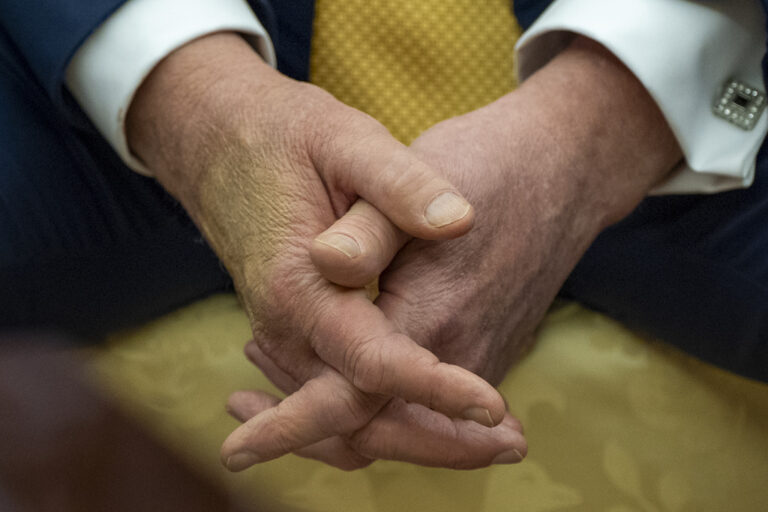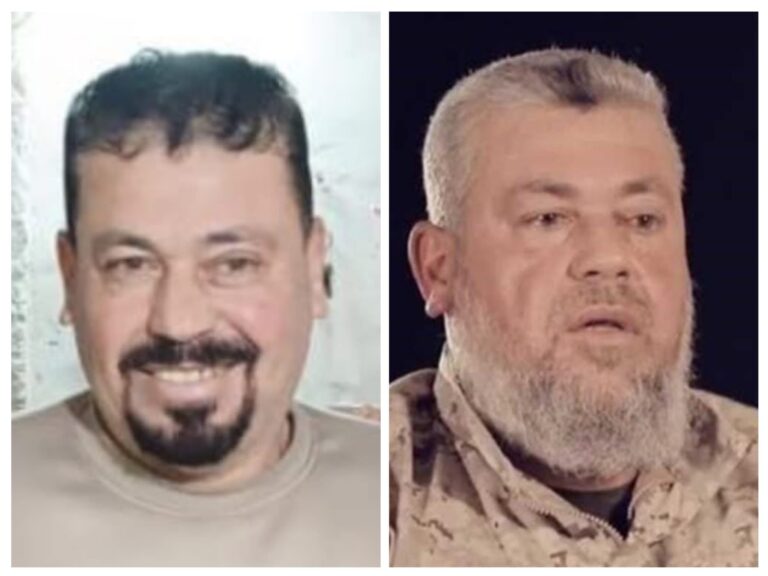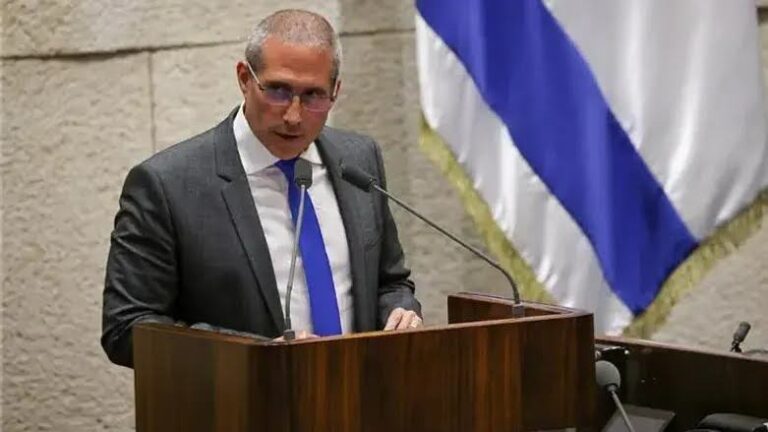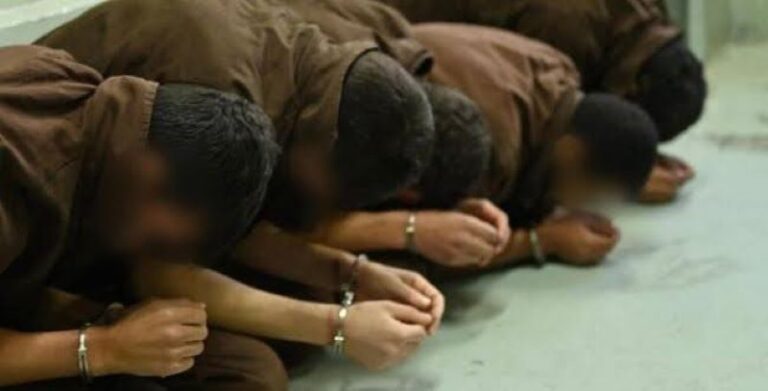 [By: Nachama Ehrenpreis Meyer & Yocheved Orlofsky]
[By: Nachama Ehrenpreis Meyer & Yocheved Orlofsky]
How does someone fit a lifetime into 34 years? What if, for seven of those years, he lay sleeping? For the thousands who knew and loved the young talmid chacham, R’ Akiva Ehrenpreis (known as Akiva Shammai ben Ahava Rivka to the thousands worldwide who for so many years beseeched the Heavens for his refuah), the answer became clear.
Akiva entered this world on Tzom Gedalia, the third of Tishrei 5738, September 15, 1977. At the age of fourteen, his happy childhood was interrupted by the discovery of a massive tumor at the base of his brain stem. Akiva underwent a tortuous series of major surgeries, including two 22-hour operations, at that time, and again at other points in his life, including three weeks after his wedding. His illness, surgeries, and recovery process left him with a lifetime of scars and medical complications. It also ingrained in him a passionate dedication to the One who saved him, which he expressed by utterly devoting the rest of his life to Talmud Torah and Klal Yisrael.
In the years to come, he continued to deal with a range of medical challenges, from a trache in his throat to a post-surgical “halo” – a metal cage that held his head in place. He suffered from an inability to eat for over a year, being unable to speak for several months, hearing loss, and extraordinary pains that none of us can imagine. But that is not what his friends and family remember. “We didn’t come to visit Akiva because it was a mitzvah; we came because it was great to spend time with him. We didn’t come because he was sick, we came to hear what his next great idea was.”
Indeed, he didn’t let the metal “halo” stop him from dancing on Simchas Torah or playing basketball, and he never let physical pain or suffering prevent him from constantly learning and doing. He not only pushed himself to the utmost but constantly pushed everyone around him to be better, to try harder, to strive to greater heights, to become the best person he could be.
A talmid in the Yeshiva and Kollel of Chaim Berlin, he was known by all, not as the kid who was sick, but as the role model all the younger boys looked up to and admired for his hasmada in Torah learning and popularity. His legacy remains in Chaim Berlin as the one who changed Thursday night mishmar. He bought doughnuts to be served at midnight, encouraged rebbeim to join, and created an atmosphere that no one wanted to miss. Because of his efforts, 100 people stayed in the beis medrash learning until 3:00 in the morning, which is still the case today.
Learning in the Mirrer Yeshiva in Eretz Yisrael, R’ Akiva learned every night until 2:00 a.m. On Thursday nights he stayed up until morning, davened vasikin at the kosel, then slept for two hours, only to return to the beis medrash once again. But he still found time to go to Geula every Friday to buy candy, kugel, and cholent for his dira, whether he was staying for Shabbos or not. “Why do you buy so much candy?” his friends would ask. “Because so-and-so likes this one, another one likes that kind…” and so he made sure that each one of his friends had their favorite treat for Shabbos.
R’ Akiva was known for his talent for kiruv and his extraordinary insight into people. From the time he was in high school, he befriended every Jew he met, from the most learned individuals to those who barely knew about their heritage. He invited over anyone who needed a meal or a friend. Everyone loved him, just because he was funny and enjoyable. He held the highest standards for himself, and he wanted to help everyone grow, but he never judged. Everyone was comfortable with him. He was a beloved son and brother, and later a devoted husband and father. There are innumerable individuals he inspired, all of which he achieved within his few short years until the age of twenty-six.
On Erev Shavuos 2004, the day before his daughter’s first birthday, Akiva choked on a bite of food. The resulting loss of oxygen left him in unconscious. He remained in a coma for seven-and-a-half years, during which time he was always surrounded by family and friends who continued to learn Torah with him and talk to him. He lived at home for four years, in his comatose state, while his wife devoted herself to ensuring that he had the best possible circumstances for his situation, and that their daughter had a Tatty in her house. His mother and father were at his side every possible minute. From the moment he was diagnosed at fourteen and through the years following his accident, their devotion and bitachon were endless.
On the Motzei Shabbos after Sukkos, 25 Tishrei 5762, October 23, 2011, just three weeks after his 34th birthday, Akiva left this world for the Olam HaEmes. Over one thousand people came to his levaya – an extraordinary testament to an individual who had not been able to utter a word for over seven years. Hespedim were said by Rav Aaron Shechter, Rosh Yeshiva of Chaim Berlin; Rav Aharon Kahn; Rav Pinchas Kahn; Akiva’s brother, Rabbi Raphael Ehrenpreis; and Akiva’s friend, R’ Naftali Verschleizer.
A small boy saw the commotion surrounding the levaya, as R’ Akiva was escorted from this world by hundreds. He asked, “Was this the levaya of a big Rosh Yeshiva?” Of course it was. As Rabbi Aharon Kahn said in his hesped, Akiva was a rebbe for thousands. Akiva has inspired so many, and his story will be told and will continue to teach, and inspire, and change the world.
During the days of shiva, the house was filled with stories of those who described how Akiva “was the first person to greet me when I came to yeshiva;” “learnt with me every Motzei Shabbos because I was going through a hard time;” “learnt with my son every Friday night because he needed extra help;” people from all walks of life whom he befriended and was mekarev; people twice and three times his age who loved and admired him; those who remember his love for people, contagious smile, whimsical charm, and sense of humor. It seemed as if every one who entered the house was either his best friend or his chavrusa.
An extraordinary story was told by Akiva’s wife, Shani, who spoke of his final surgery, performed just after their wedding. It was an operation necessary to save Akiva’s life, but one that would leave him with many physical challenges to overcome. Akiva had already been in the OR for some time, when, to his wife’s surprise, the anesthesiologist burst out of the operating theater with the announcement, “I need Kivi’s tefillin.” “But he’s already put on tefillin today,” she countered. “No,” he replied. “It’s for me.”
It turned out that Akiva had a policy that no Jewish doctor was permitted to treat him – unless and until he had put on tefillin and said shema. “A Jew who does not put on tefillin and say shema is not mekabel shem shamayim – and in that case, how he can be Hashem’s shaliach in bringing my refuah?”
This time, Akiva had been insisting that he “won’t go to sleep until the doctor puts on tefillin”; but to no avail – the anesthesiologist refused. Finally, however, he surrendered: “I have given your husband enough medication to put an elephant to sleep,” he reported to Akiva’s wife, “and he is still wide awake. I give up!” He put on the tefillin; and then returned to the OR – where Akiva fell immediately asleep, ready, finally, for surgery to begin.
R’ Akiva had an unforgettable determination to utilize “every day as if it were his last.” The young Akiva was able to achieve a tremendous lifetime of accomplishment in the far too few years we were blessed to have him with us. He told his friends of his dream, to have everyone take off one day of work, just one day to sit and learn. “Would that be so hard?” he would say. And together, everyone would learn Torah all day. “How could Mashiach not come?”
That was Akiva. That was what he dreamed.
Yehi Zichro Baruch…
(YWN World Headquarters – NYC)











11 Responses
wow,i didnt know him but he sounds like he was an incredible peronality, a true loss to klal yisroel.
yehi zichro baruch
I was very sorry to hear of his death. I did daven for him for years. May he be a meilitz yosher for his family and for all of klall yisroel.
Who is the author of this beautiful article above?
Oops, I see it has a byline. Thank you.
And thank you Mrs. Ehrenpreis and your late husband zt”l, and the rest of the family for providing Akiva the love and support that enabled him to overcome emotionally and spiritually the many hurdles which would have devastated most of us. He was sharp and a wit and not only left you with some insightful Torah thoughts but had us smiling as well. And thank you for sharing a bit of the story of Kivi with us.
I believe that when one does so much good for people during his life, he does much more when he is close to hashem. May he ask hashem to free his people and may we be zocha to meet him again in the very near future.
Akiva, was an incredible person and role model. A true Tzaddik. B”D”E.
Baruch Dayan Haemes. It is clear that he was a true Tzaddik.
BDE, he will be a true melitz yosher for his family and for the rest of klal yisroel.
Thank you for articulating those feelings that all that knew him had. Akiva sat next to me in Bais Medrash. I was always impressed by his upbeat demeanor, even during such trying times. I would watch him learn with his chavrusa, sometimes he would get animated while discussing a sugya, even though it seemed difficult for him physically.
Yehi Zichro Baruch
Baruch Dayan Emes. I wish that I had had the opportunity to know this remarkable young man. He certainly knew how to motivate others and knew how to live each day to its fullest. We can all learn many lessons from the way he chose to live his life.